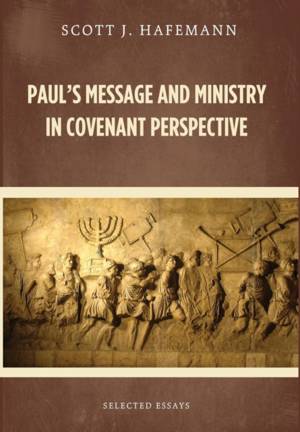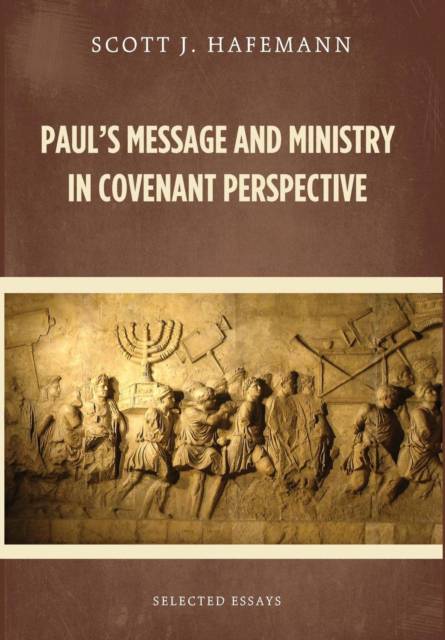
Bedankt voor het vertrouwen het afgelopen jaar! Om jou te bedanken bieden we GRATIS verzending (in België) aan op alles gedurende de hele maand januari.
- Afhalen na 1 uur in een winkel met voorraad
- In januari gratis thuislevering in België
- Ruim aanbod met 7 miljoen producten
Bedankt voor het vertrouwen het afgelopen jaar! Om jou te bedanken bieden we GRATIS verzending (in België) aan op alles gedurende de hele maand januari.
- Afhalen na 1 uur in een winkel met voorraad
- In januari gratis thuislevering in België
- Ruim aanbod met 7 miljoen producten
Zoeken
Paul's Message and Ministry in Covenant Perspective
Selected Essays
Scott J Hafemann
Hardcover | Engels
€ 66,95
+ 133 punten
Uitvoering
Omschrijving
The essays presented here represent over twenty-five years of thinking about the theology and life of the Apostle Paul who, as a "slave of Jesus Christ" (Rom 1:1), was a "servant of the new covenant" with a "ministry of the Spirit" (2 Cor 3:6, 8). Taking the questions raised by the history of scholarship since F. C. Baur as their starting point, Hafemann's exegetical studies focus on how Paul's self-understanding shaped his message, the motivations of his ministry, and his consequent call to suffer for the sake of his churches. Hafemann's work reveals that Paul's views of redemption, of his own redemptive mission, and of the life of the redeemed derived from his eschatological conviction that the purpose of the new covenant realities inaugurated by the Christ is to prepare for their promised consummation when Christ returns to judge the world.
Specificaties
Betrokkenen
- Auteur(s):
- Uitgeverij:
Inhoud
- Aantal bladzijden:
- 228
- Taal:
- Engels
Eigenschappen
- Productcode (EAN):
- 9781498222389
- Verschijningsdatum:
- 22/01/2015
- Uitvoering:
- Hardcover
- Formaat:
- Genaaid
- Afmetingen:
- 152 mm x 229 mm
- Gewicht:
- 494 g

Alleen bij Standaard Boekhandel
+ 133 punten op je klantenkaart van Standaard Boekhandel
Beoordelingen
We publiceren alleen reviews die voldoen aan de voorwaarden voor reviews. Bekijk onze voorwaarden voor reviews.









